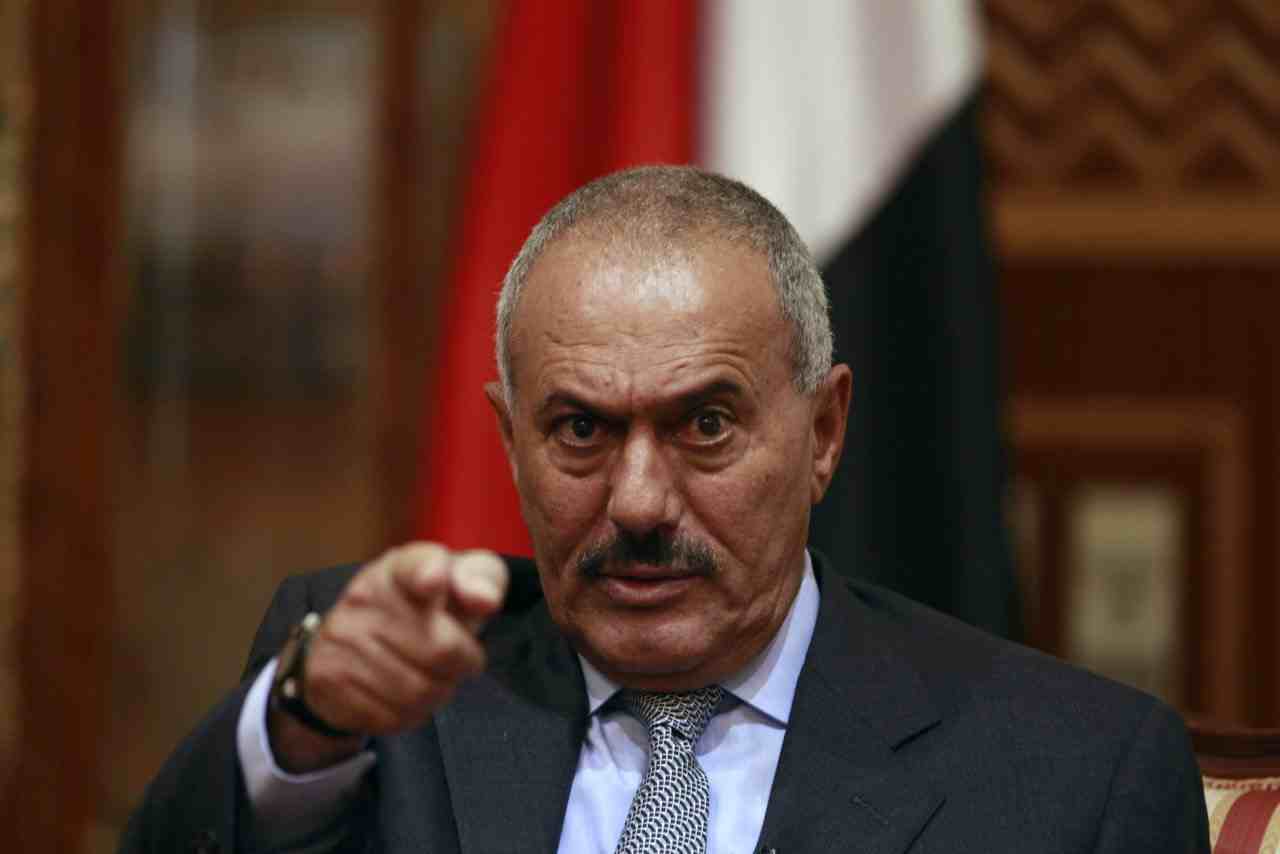Cairo- Entering a third year in an alliance built on toppling the internationally-backed government in Yemen, the main two wings leading the coup have found themselves at political odds.
The rift was made public after ousted president Ali Abdullah Saleh, whose armed loyalists play a key part in the coup, felt marginalized by Iran-allied Houthis who make up for the coup’s second orchestrators.
Coup-run Sana’a, since the dispute erupted, found itself in an intense standoff as both insurgency parties took to media their differences.
All eyes turned to protests Saleh called on his allies and party members to join in memory of the 35th anniversary of the General People’s Congress, a political party he chairs.
However, the People’s Congress is more divided than ever as a part of its key political leaders, such as Ahmed Obeid bin Daghr, have decided to back the constitutionally elected government headed by President Abdrabbuh Mansur Hadi.
Sky News in Arabic’s correspondent in Yemen reported that a crowd of at least 30,000 Saleh armed loyalists showing up to the event.
Media affiliated with both coup partners quoted each of the two speeches of Saleh and the Houthis’ leader Abdul-Malik Badreddin al-Houthi, the bulk of which fueled by heated anti-government rhetoric.
Despite their joint disagreement with the Hadi administration, both coup leaders still negatively referred to each other inching in closer towards excommunicating each other’s role in the coup’s leadership.
Saleh called on the Houthis to tame their “demons,” while Houthis accused the People’s Congress of rejoicing over the insurgency’s battlefield defeats.
More so, Houthis actively objected to Saleh calling on protests or marches to commemorate his party’s establishment in Sana’a. Houthis’ refusal for the Thursday event was without reasons.
But observers believe that the rejection is due to the widening rift between the two sides on a number of issues, especially after the disputes went public.
It is now seen that Houthis are seeking undisputed hegemony in areas of their control, an approach derived from their direct backer, Tehran.
Houthis continue to threaten preventing the pro-Saleh parade, and have deployed hundreds of militiamen at Sana’a gates in a move to stop Saleh’s supporters from entering the capital.
Saleh loyalists have begun to arrive from all Yemeni provinces and districts nearby the capital.
Increasing the chances of escalation, Saleh’s forces, in a counter move, stationed forces across the spectrum and ordered the usage of force if ‘necessary,’ informed sources told Asharq Al-Awsat.
